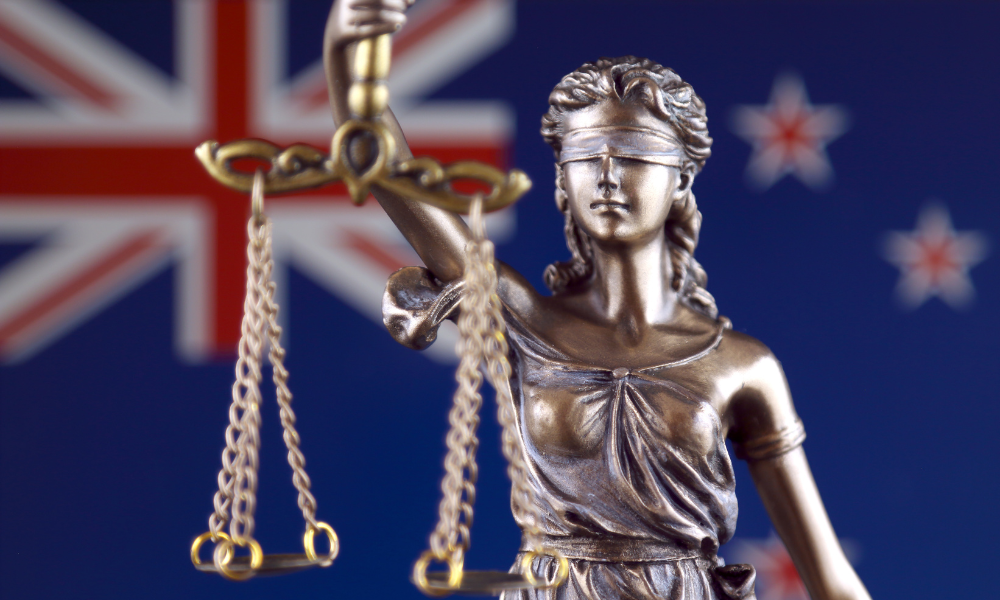An expert says leaving the EU requires amending the Scotland Act thereby requiring legislative consent from the Scottish Parliament.
Yet another layer of complexity has been added on top of the UK’s quest to exit the European Union as it turns out the Scottish Parliament may have the legal standing to block the triggering of Article 50 of the Lisbon Treaty.
In an interview with The Guardian which comes to us via Business Insider, Conservative MP Anna Soubry mentioned in passing that the Scottish Parliament should determine devolved Scottish matters.
“Yes. I’m reliably informed that the Scotland Act 2016 section 2 says that you cannot interfere with devolved Scottish matters, they must be determined by the Scottish parliament,” Soubry, who’s said to believe Holyrood has a strong case, commented.
Edinburgh and First Minister Nicola Sturgeon are, of course, against Brexit, and if this gives Scotland a way to block the move, it may just use the opportunity to.
The House of Lords has been given legal advice that the Scottish Parliament’s approval would be needed to execute Brexit.
In discussions of The Select Committee on the European Union’s inquiry on leaving the EU back in March, Sir David Edward explained that since EU law is integrated into the Scotland Act, the Act would need to be revised.
Baroness Suttie asked:
I turn to the devolved Administrations. What legislative measures would be necessary to extinguish the application of EU law in the devolved nations? I have a specific question to Sir David, if I may. Do you think that the Scottish Parliament would be likely to grant legislative consent? If they did not, what would be the consequences?
Sir David Edward explained:
The formal consequence is this. Under Section 29 of the Scotland Act 1998 the Scottish Parliament is bound by EU law, and, ditto, under Section 57(2) the Scottish Government are bound by EU law. Under the Scotland Bill that is going through Parliament at the moment, the Sewel convention will be recognised in Section 2 if it becomes an Act. Therefore, as I see it, you would have to amend the Scotland Act and, therefore, you would have to have legislative consent from the Scottish Parliament.
Nonetheless, other experts do not agree. According to Anderson Strathern partner Fiona Killen, the UK Parliament still retains absolute power to legislate over devolved areas, reported Business Insider:
“As reflected in section 28(7) of the Scotland Act 1998, the devolution of power to Scotland was not an absolute transfer of power, but rather a sharing of power, with the UK Parliament retaining the absolute power to legislate in devolved areas. Section 28(8) remains subject to section 28(7) which states that ‘This section does not affect the power of the Parliament of the United Kingdom to make laws for Scotland.’”
Related stories:
30 year-low for UK domestic M&A deals after Brexit vote
Trump win may imperil major M&A deals
In an interview with The Guardian which comes to us via Business Insider, Conservative MP Anna Soubry mentioned in passing that the Scottish Parliament should determine devolved Scottish matters.
“Yes. I’m reliably informed that the Scotland Act 2016 section 2 says that you cannot interfere with devolved Scottish matters, they must be determined by the Scottish parliament,” Soubry, who’s said to believe Holyrood has a strong case, commented.
Edinburgh and First Minister Nicola Sturgeon are, of course, against Brexit, and if this gives Scotland a way to block the move, it may just use the opportunity to.
The House of Lords has been given legal advice that the Scottish Parliament’s approval would be needed to execute Brexit.
In discussions of The Select Committee on the European Union’s inquiry on leaving the EU back in March, Sir David Edward explained that since EU law is integrated into the Scotland Act, the Act would need to be revised.
Baroness Suttie asked:
I turn to the devolved Administrations. What legislative measures would be necessary to extinguish the application of EU law in the devolved nations? I have a specific question to Sir David, if I may. Do you think that the Scottish Parliament would be likely to grant legislative consent? If they did not, what would be the consequences?
Sir David Edward explained:
The formal consequence is this. Under Section 29 of the Scotland Act 1998 the Scottish Parliament is bound by EU law, and, ditto, under Section 57(2) the Scottish Government are bound by EU law. Under the Scotland Bill that is going through Parliament at the moment, the Sewel convention will be recognised in Section 2 if it becomes an Act. Therefore, as I see it, you would have to amend the Scotland Act and, therefore, you would have to have legislative consent from the Scottish Parliament.
Nonetheless, other experts do not agree. According to Anderson Strathern partner Fiona Killen, the UK Parliament still retains absolute power to legislate over devolved areas, reported Business Insider:
“As reflected in section 28(7) of the Scotland Act 1998, the devolution of power to Scotland was not an absolute transfer of power, but rather a sharing of power, with the UK Parliament retaining the absolute power to legislate in devolved areas. Section 28(8) remains subject to section 28(7) which states that ‘This section does not affect the power of the Parliament of the United Kingdom to make laws for Scotland.’”
Related stories:
30 year-low for UK domestic M&A deals after Brexit vote
Trump win may imperil major M&A deals







